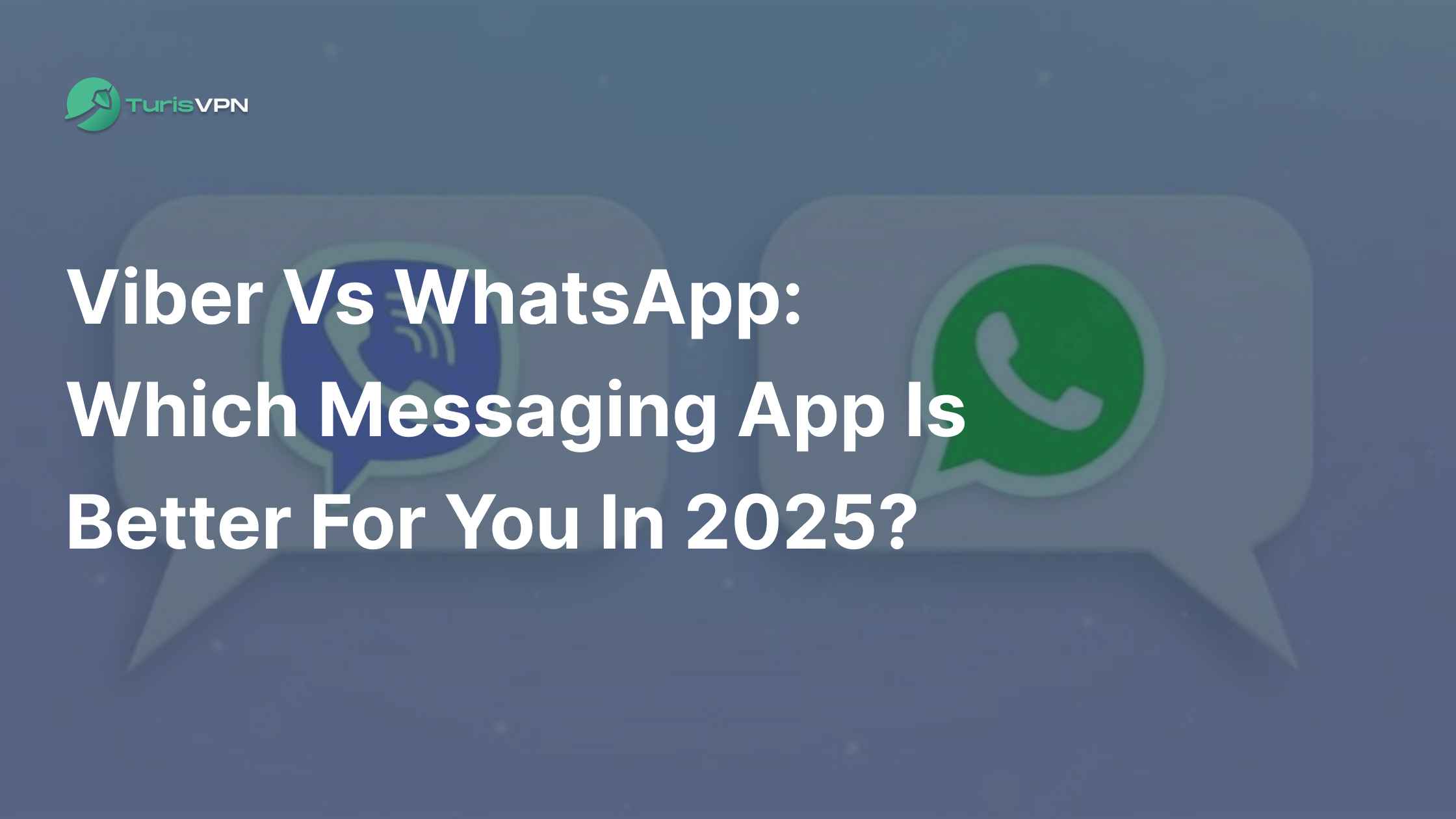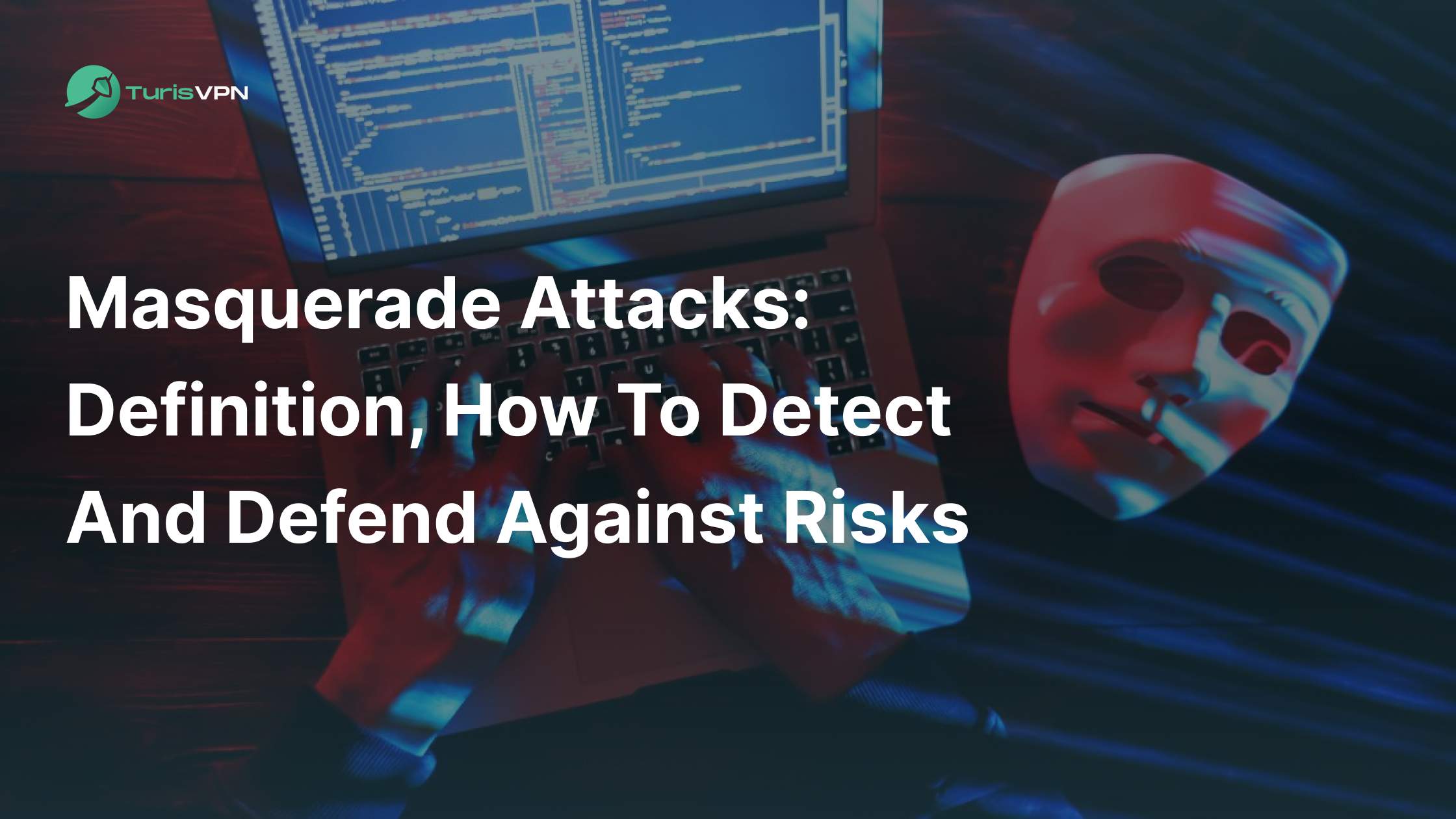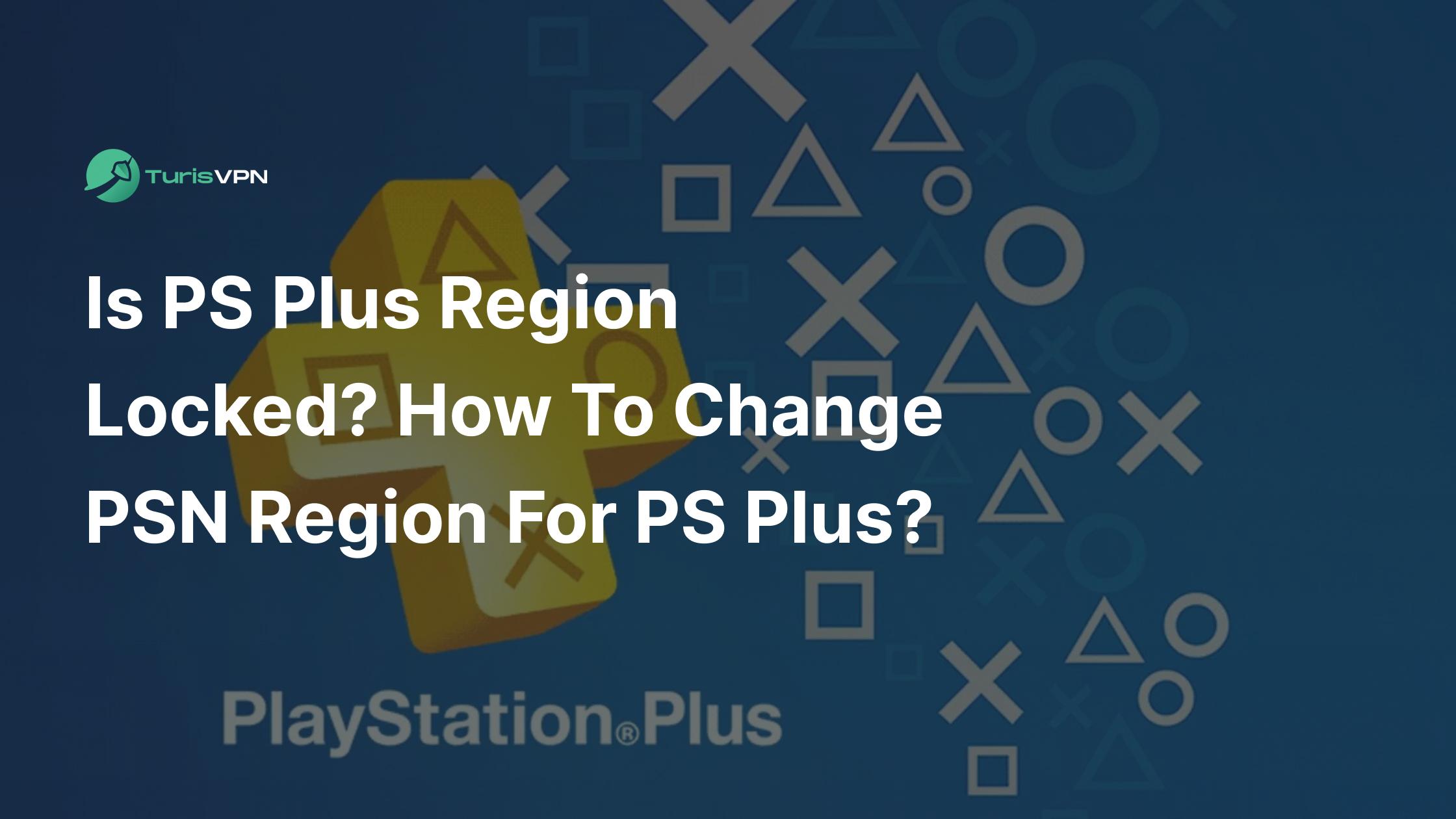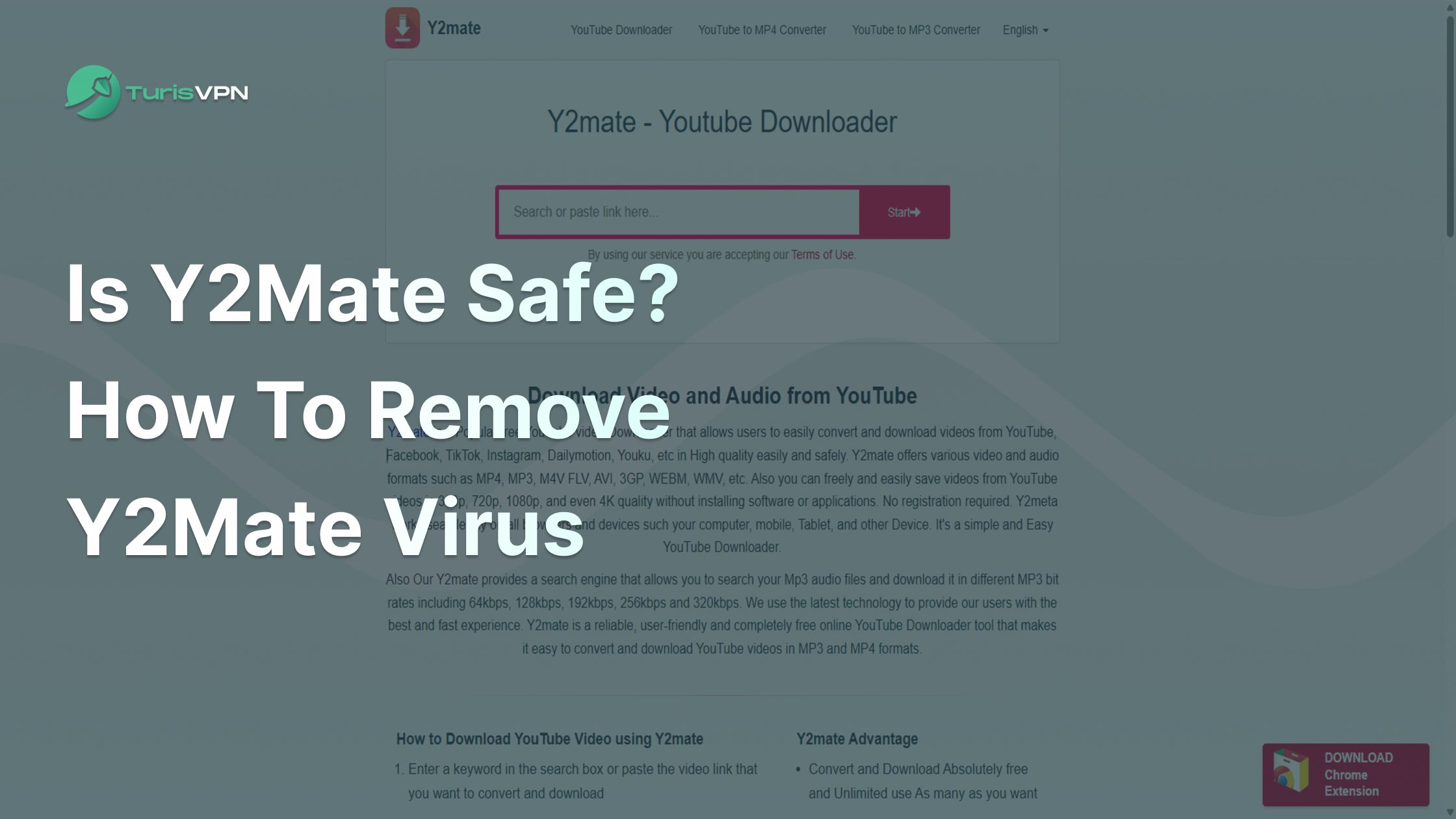You’re about to message a friend, but then comes the question. Which app should I use? Viber vs WhatsApp? Both seem similar, yet people have strong opinions about which is better. If you’re worried about privacy, WhatsApp’s Meta ownership might raise concerns. But then again, Viber isn’t as widely used, which could be a dealbreaker.
This article will clear up the confusion. We’ll compare security, call quality, features, and usability so you can decide which app truly fits your needs. Whether you want encrypted chats, seamless international calls, or better group messaging, we’ve got you covered.
Viber vs WhatsApp: Overview
While WhatsApp dominates globally with over 2 billion active users, Viber remains a strong competitor with 1.3 billion registered users and a focus on privacy-first messaging. This guide will provide a detailed comparison to help you decide which platform is best for you.
What is Viber?
Launched in 2010, Viber is a free messaging and Voice over Internet Protocol (VoIP) app that enables users to send text messages, share multimedia, and make high-quality voice and video calls. Over the years, it has gained traction in Eastern Europe, the Middle East, and parts of Asia, where its privacy features and community-driven approach set it apart. Unlike many messaging apps, Viber allows users to make calls to non-Viber numbers through its Viber Out feature, making it a strong alternative for international calls.
One of Viber’s key strengths is its security and privacy-focused features. It provides end-to-end encryption on all calls and messages, ensuring that only the sender and recipient can access them. Additionally, it offers hidden chats, disappearing messages, and self-destructing media, giving users extra layers of privacy. For those who love personalizing their chats, Viber also has an extensive collection of stickers, emojis, and GIFs to enhance conversations.
What is WhatsApp?
WhatsApp, launched in 2009 and acquired by Meta (formerly Facebook) in 2014, has grown into the world’s most popular messaging app. By 2025, it boasts over 2 billion active users, with strong popularity in North America, Europe, and Latin America. Its widespread use and simple interface make it a go-to choice for both personal and business communication.
The app offers free messaging, voice, and video calls, along with handy features like status updates, group chats, and WhatsApp Web for syncing conversations on desktop devices. Security is a priority, with end-to-end encryption ensuring that only the sender and receiver can read messages.
Over the years, WhatsApp has continued to evolve, introducing disappearing messages, AI-powered chat tools, and improved group management features to enhance user experience. With its mix of convenience, security, and constant updates, WhatsApp remains a top choice for staying connected.
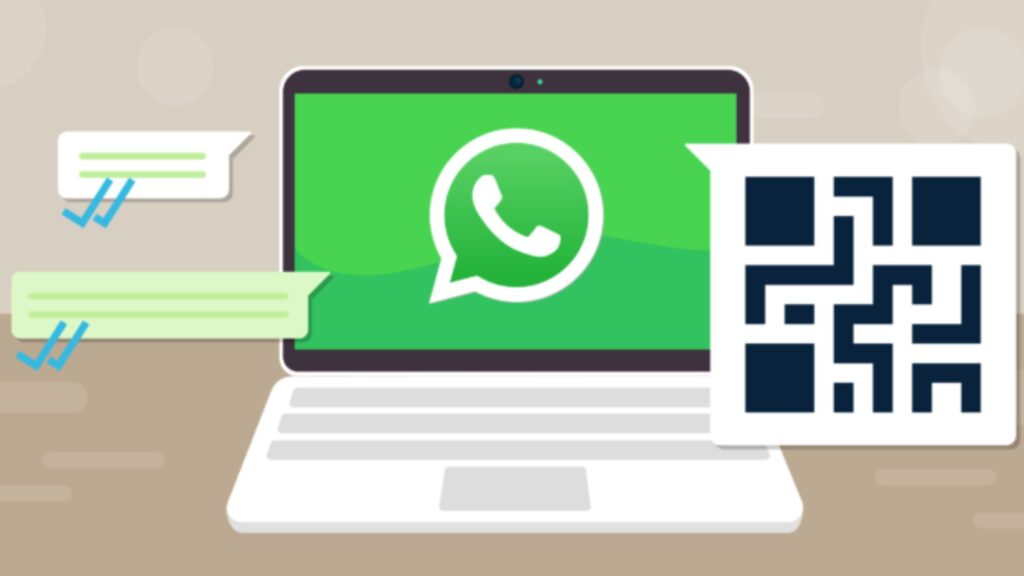
What’s The Similarity Between Viber vs WhatsApp?
We’ll explore the key similarities between Viber vs WhatsApp to help you understand what makes them both great choices for staying connected.
1. Free Messaging and Calling
One big reason people choose Viber or WhatsApp is the free messaging and calling. Both apps let you send texts, voice messages, photos, and videos at no extra cost. As long as you’re connected to Wi-Fi or mobile data, you can stay in touch with anyone, anywhere.
Additionally, both platforms allow voice and video calls. Whether you want a quick chat or a face-to-face conversation, both apps provide clear, high-quality audio and video calls at no cost.
2. End-to-End Encryption for Security
Security is a major concern for users today, and both Viber vs WhatsApp have strong end-to-end encryption. This means that when you send a message or make a call, only you and the person you’re talking to can read or hear it. Even the companies behind the apps can’t access your private conversations, making them safe from hackers or surveillance.
This encryption applies to text messages, voice calls, video calls, and shared media, ensuring your conversations remain private. But what if you accidentally delete important messages? Learn how to retrieve deleted WhatsApp messages and never lose crucial chats again.
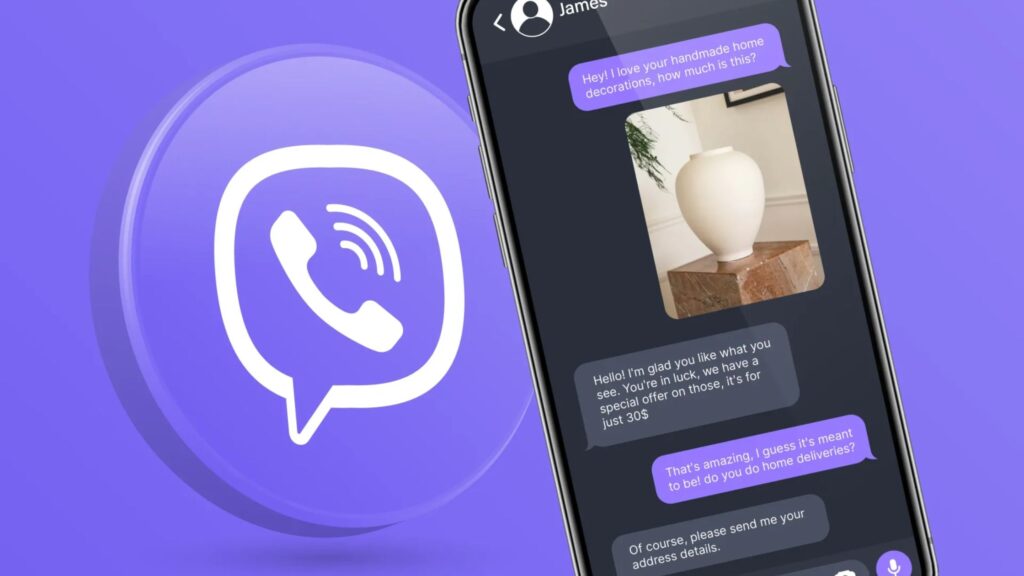
3. Cross-Platform Availability
Both apps work on multiple devices, so you’re never limited to just your phone.
- Mobile Apps: Available on Android and iOS, so no matter what phone you use, you can install and use either app.
- Desktop Apps: Both offer Windows and Mac versions, allowing users to chat from their computers.
- Web Versions: WhatsApp has WhatsApp Web, and Viber has a similar feature where you can sync your chats and continue texting from a browser.
What’s The Difference Between Viber vs WhatsApp?
Both apps let you send messages, make voice calls, and video chat, but they differ in features, security, ease of use, and who typically uses them.
Features
- WhatsApp: Lets you create group chats with up to 1024 people—great for big communities, schools, or workplaces. Offers a basic emoji set and a few stickers (a limited selection of stickers).
- Viber: Supports group chats of up to 250 members and stands out with thousands of stickers, including custom options. Fun fact: Viber users send over 10 billion stickers every month!
Want to save an important call for later? Here’s a simple guide on how to record WhatsApp calls without hassle.
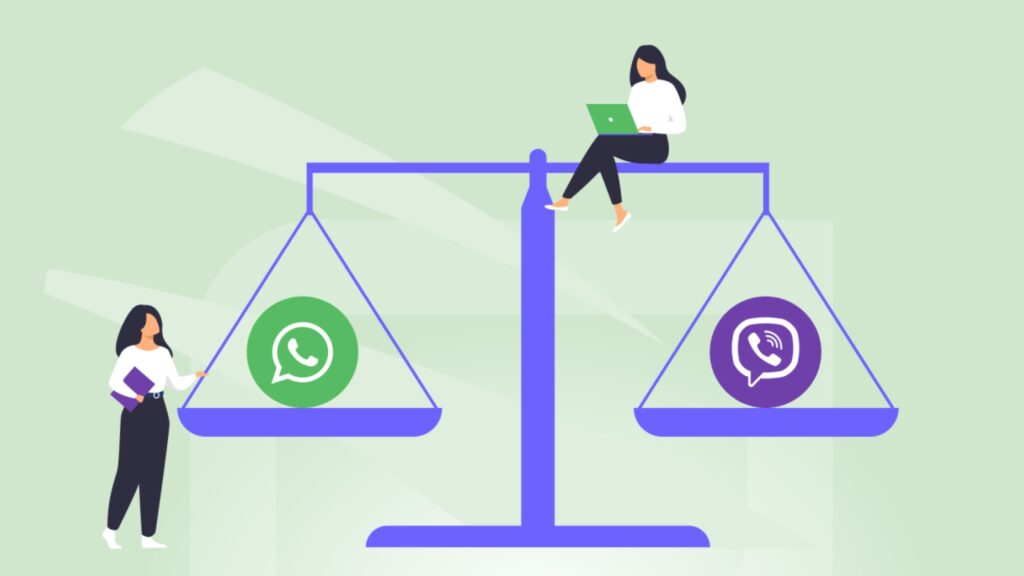
Integrations
Integration capabilities can significantly enhance the functionality of messaging apps:
- WhatsApp: WhatsApp lets users connect their accounts with Facebook to share content easily. It also works with Google Drive for quick file sharing and syncs smoothly between web and mobile devices.
- Viber: Viber connects to a number of applications, including YouTube, Spotify, and GIPHY. Enabling users to share and play media right within the chat window. Additionally, it facilitates third-party service integration. Companies use Viber’s chatbot features for customer care and engagement.
Convenience
- WhatsApp: Features a minimalist and user-friendly design, ensuring easy navigation for users of all ages.
- Viber: Provides more customization options (themes, chat backgrounds), which may feel cluttered for some users.
Security
- WhatsApp: Uses end-to-end encryption to keep chats private. Also has two-factor authentication and disappearing messages for extra security.
- Viber: Takes privacy even further with hidden chats (protected by a PIN) and self-destructing messages—perfect for private conversations.
Users
Understanding the user demographics can help in choosing the right platform:
- WhatsApp: With over 2 billion active users globally, WhatsApp has a vast network. Making it easier to connect with friends, family, and colleagues worldwide.
- Viber: While Viber has a smaller user base, it maintains a substantial presence in specific regions. Particularly in Eastern Europe, Asia, and the Middle East.
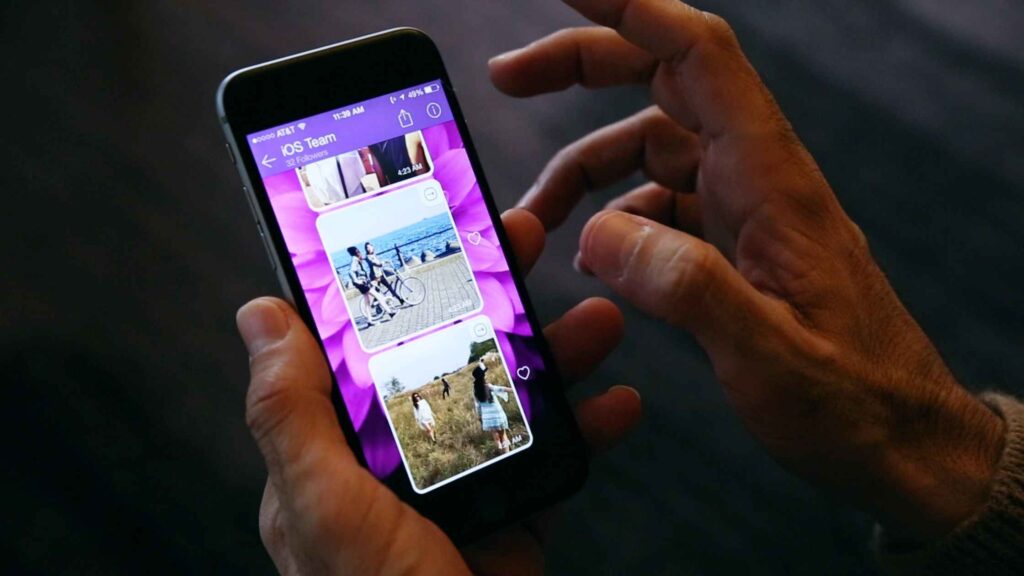
How To Protect Your Conversations Online With TurisVPN?
Protecting your online conversations is essential to keep your personal information safe from prying eyes. Using a Virtual Private Network (VPN) like TurisVPN can help secure your chats and data. Here’s how:
- Download the App: Install TurisVPN on your device from the official website or app store.
- Connect to a Server: Open the app and connect to a VPN server.
- Browse Securely: Once connected, your online conversations and activities are encrypted and protected.
TurisVPN encrypts the information you send and receive online. When you use TurisVPN, your real IP address is hidden. Instead, websites and online services see the IP address of the VPN server you’re connected to. Not all VPNs offer the same level of security. Before choosing one, check out this comparison of paid vs. free VPNs to make the right choice
This means that even if someone tries to intercept your data, they won’t be able to read it. Encryption turns your messages into a secret code that only the intended recipient can understand. By using TurisVPN, you can keep your online conversations private and secure. Giving you peace of mind while chatting or sharing information on the internet.
Bottom Line
Viber is great for privacy features and international calls, while WhatsApp wins with better security audits, call quality, and a larger user base. If customization and hidden chats matter, go for Viber. If you need seamless messaging with almost everyone you know, stick with WhatsApp.
No matter which app you use, your conversations aren’t 100% private without extra protection. A VPN like TurisVPN keeps your chats secure from hackers and trackers—especially on public Wi-Fi.
FAQs
Q1. Is Viber or WhatsApp safer?
Since WhatsApp has stronger security checks and transparent policies, many users claim it is safer to use. Only both sender and receiver can read messages thanks to end-to-end encryption, which is used by both WhatsApp and Viber. In contrast to Viber, WhatsApp encrypts all communications by default.
Q2. Why do people prefer Viber?
Viber offers several exclusive features that set it apart from other messaging apps like WhatsApp:
Viber’s Viber Out feature allows users to make cheap international calls to landlines and mobile numbers, even if the recipient doesn’t have Viber. WhatsApp only supports calls between its users. Users can hide specific chats behind a PIN code, making them completely invisible until unlocked. WhatsApp doesn’t have this feature.
Q3. What is the downside of Viber?
Viber’s voice and video call quality can be unstable, especially with slow or weak internet connections. WhatsApp and Telegram often provide smoother calls. Unlike WhatsApp, Viber allows calling landlines and non-Viber users requires buy credits.
